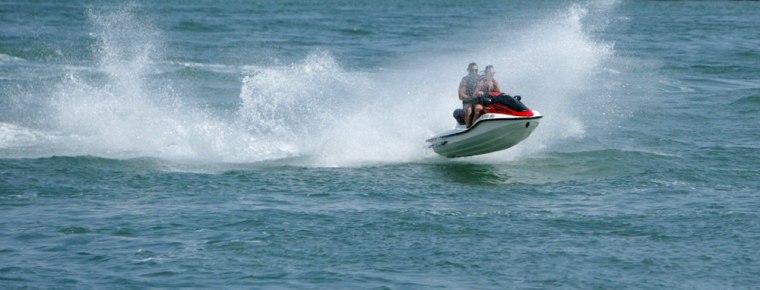I'm on vacation in Mexico again with my wife. It's the first time we've been back since October 2005. And it's no accident that this time, we're here in late spring instead of autumn, which is traditionally one of the worst times for hurricanes. When Hurricane Wilma hit a year and a half ago, we were in Playa del Carmen, south of Cancun. We got out safely, but only after spending 60 hours in a hurricane shelter, 24 hours on a bus, and hundreds and hundreds of dollars in extra expenses for which we were never reimbursed.
Here are six things I learned the hard way about vacationing in a hurricane-prone region.
1. Next time, I would buy travel insurance to cover emergency expenses like extra days in hotels and the $800 our airline wanted to charge when we tried to leave ahead of the storm. The airline insisted that Wilma, a category 4-5 storm, wasn't going to disrupt our flight, even though it was slated to hit five hours before our original scheduled departure.
2. Next time, I would get paper tickets. No one was allowed into the airport in Cancun without paper tickets. E-tickets - which we had - meant nothing.
3. It's fun and easy to book your own vacations, but that also means you're on your own in case of emergency. The tourists who were evacuated first were all on package tours with big companies. Most were European.
We booked our own trip through an online travel booking service. When we called the company for help, we were told to talk to the airline. When we called the airline, we were told to talk to the booking company. By the time they spoke to each other, it was too late for us to leave.
Some online companies now offer guaranteed assistance in rebooking in case of emergencies. Look for one of those guarantees.
4. Be decisive! If it looks like a hurricane is coming your way, go to the airport and refuse to leave until you get a flight out. Forget about using the phone. We finally just hopped a bus to Mexico City. It was the only way to get a flight home.
5. Before you leave home, find one person who is willing to serve as a contact for news on your whereabouts. That way, you only need to make one phone call or send one e-mail to say that you're OK, that you're stuck somewhere, or when you'll be back. Your designated contact can pass along updates to the boss, the dogsitter and anyone else who needs to know.
6. Maintain your perspective. Some things are beyond your control. As long as you are OK, try to look on the bright side. Believe it or not, we made some friends in the shelter. And remember that the local people who end up helping you are living through this disaster, too. Their homes, families and livelihoods are all at risk. Don't forget to thank them for whatever help they provide.
